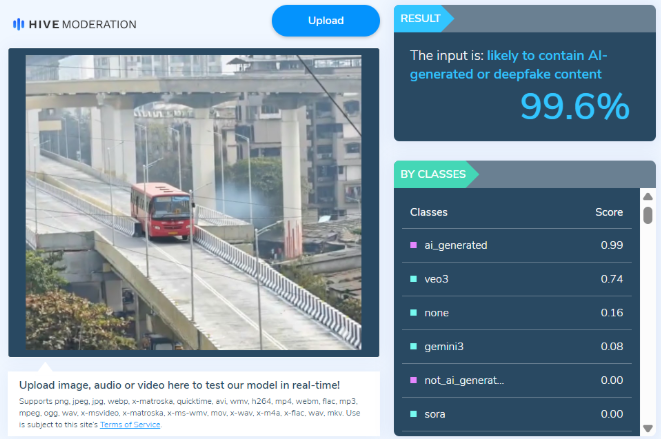AI Revolution
Introduction
The rapid advancement of artificial intelligence (AI) technology has sparked intense debates and concerns about its potential impact on humanity. Sam Altman, CEO of AI research laboratory OpenAI, and Altman, known as the father of ChatGPT, an AI chatbot, hold a complex position, recognising both the existential risks AI poses and its potential benefits. In a world tour to raise awareness about AI risks, Altman advocates for global cooperation to establish responsible guidelines for AI development. Artificial intelligence has become a topic of increasing interest and concern as technology advances. Developing sophisticated AI systems raises many ethical questions, including whether they will ultimately save or destroy humanity.
Addressing Concerns
Altman engages with various stakeholders, including protesters who voice concerns about the race toward artificial general intelligence (AGI). Critics argue that focusing on safety rather than pushing AGI development would be a more responsible approach. Altman acknowledges the importance of safety progress but believes capability progress is necessary to ensure safety. He advocates for a global regulatory framework similar to the International Atomic Energy Agency, which would coordinate research efforts, establish safety standards, monitor computing power dedicated to AI training, and possibly restrict specific approaches.
Risks of AI Systems
While AI holds tremendous promise, it also presents risks that must be carefully considered. One of the major concerns is the development of artificial general intelligence (AGI) without sufficient safety precautions. AGI systems with unchecked capabilities could potentially pose existential risks to humanity if they surpass human intelligence and become difficult to control. These risks include the concentration of power, misuse of technology, and potential for unintended consequences.
There are also fears surrounding AI systems’ impact on employment. As machines become more intelligent and capable of performing complex tasks, there is a risk that many jobs will become obsolete. This could lead to widespread unemployment and economic instability if steps are not taken to prepare for this shift in the labour market.
While these risks are certainly caused for concern, it is important to remember that AI systems also have tremendous potential to do good in the world. By carefully designing these technologies with ethics and human values in mind, we can mitigate many of the risks while still reaping the benefits of this exciting new frontier in technology.

Open AI Systems and Chatbots
Open AI systems like ChatGPT and chatbots have gained popularity due to their ability to engage in natural language conversations. However, they also come with risks. The reliance on large-scale training data can lead to biases, misinformation, and unethical use of AI. Ensuring open AI systems’ safety and responsible development mitigates potential harm and maintains public trust.
The Need for Global Cooperation
Sam Altman and other tech leaders emphasise the need for global cooperation to address the risks associated with AI development. They advocate for establishing a global regulatory framework for superintelligence. Superintelligence refers to AGI operating at an exceptionally advanced level, capable of solving complex problems that have eluded human comprehension. Such a framework would coordinate research efforts, enforce safety standards, monitor computing power, and potentially restrict specific approaches. International collaboration is essential to ensure responsible and beneficial AI development while minimising the risks of misuse or unintended consequences.
Can AI Systems Make the World a Better Place: Benefits of AI Systems
AI systems hold many benefits that can greatly improve human life. One of the most significant advantages of AI is its ability to process large amounts of data at a rapid pace. In industries such as healthcare, this has allowed for faster diagnoses and more effective treatments. Another benefit of AI systems is their capacity to learn and adapt over time. This allows for more personalised experiences in areas such as customer service, where AI-powered chatbots can provide tailored solutions based on an individual’s needs. Additionally, AI can potentially increase efficiency in various industries, from manufacturing to transportation. By automating repetitive tasks, human workers can focus on higher-level tasks that require creativity and problem-solving skills. Overall, the benefits of AI systems are numerous and promising for improving human life in various ways.
We must remember the impact of AI on education. It has already started to show its potential by providing personalised learning experiences for students at all levels. With the help of AI-driven systems like intelligent tutoring systems (ITS), adaptive learning technologies (ALT), and educational chatbots, students can learn at their own pace without feeling overwhelmed or left behind.
While there are certain risks associated with the development of AI systems, there are also numerous opportunities for them to make our world a better place. By harnessing the power of these technologies for good, we can create a brighter future for ourselves and generations to come.

Conclusion
The AI revolution presents both extraordinary opportunities and significant challenges for humanity. The benefits of AI, when developed responsibly, have the potential to uplift societies, improve quality of life, and address long-standing global issues. However, the risks associated with AGI demand careful attention and international cooperation. Governments, researchers, and industry leaders must work together to establish guidelines, safety measures, and ethical standards to navigate the path toward AI systems that serve humanity’s best interests and safeguard against potential risks. By taking a balanced approach, we can strive for a future where AI systems save humanity rather than destroy it.







.webp)
